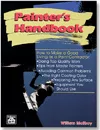Publisher's Post
Watching Life Lessons
What tennis tournaments taught me about emotional intelligence, leadership and grace under pressure.

This spring, I’ve spent a lot of time courtside, watching my daughter compete in tennis tournaments. Since she started playing tennis three years ago, I never realized just how emotionally challenging the sport can be. From the stands, it’s easy to admire the grace and grit of professional players, how effortlessly they move and how calmly they handle pressure. But when it’s your own kid out there, it’s a whole different story.
A few weeks ago, Kelly completely fell apart during a match. She was overwhelmed, frustrated and emotionally exhausted. Afterward, she told me, “I just can’t let that happen again.” That moment hit me hard; not just as a parent but as a reminder of how often we all face those pressure-packed moments.
Growth Under Pressure
Have you ever had to keep it together at work, leading your team, or even watching your own kids navigate the ups and downs of life or sports? It’s not easy. But it’s in those emotionally charged moments that real growth happens; not just in skill but in emotional intelligence.
That’s something I’ve been reflecting on a lot lately: the ability to stay composed, self-aware, and resilient in the face of challenge. It’s a lesson that applies well beyond the court: Into every jobsite, every business meeting, and every tough conversation we lead.
It reminded me of a book I recently picked up, “The Inner Game of Tennis,” by W. Timothy Gallwey. It’s a classic that goes far beyond tennis. Gallwey writes about how our greatest opponent isn’t across the net; it’s in our own mind. He teaches how to quiet that inner critic, stay present, and trust your training. It’s about composure, clarity, and not letting a single moment define you. Sound familiar?
Leading With Emotional Intelligence
As leaders, we set goals to help our teams grow not just in their roles, but in how they carry themselves, how they think, and how they respond to pressure. Emotional intelligence is one of the most powerful tools we can develop—and model—for our teams. Because the truth is, whether it’s your kid holding a racquet or your employee facing a tough client, the ability to pause, breathe, and respond (instead of react) can change the game.
This month, I invite you to reflect: How are you helping your team grow, not just in performance, but in poise? What are you doing to model emotional resilience in your company culture? Because while we may not be holding a racquet, the game we play every day (managing people, solving problems, building trust) is every bit as demanding.
And as I’ve learned lately, it’s not the mistakes we make that define us, it’s how quickly we recover and handle them with grace.
Wishing you a strong, emotionally intelligent July.
Looking for a reprint of this article?
From high-res PDFs to custom plaques, order your copy today!








